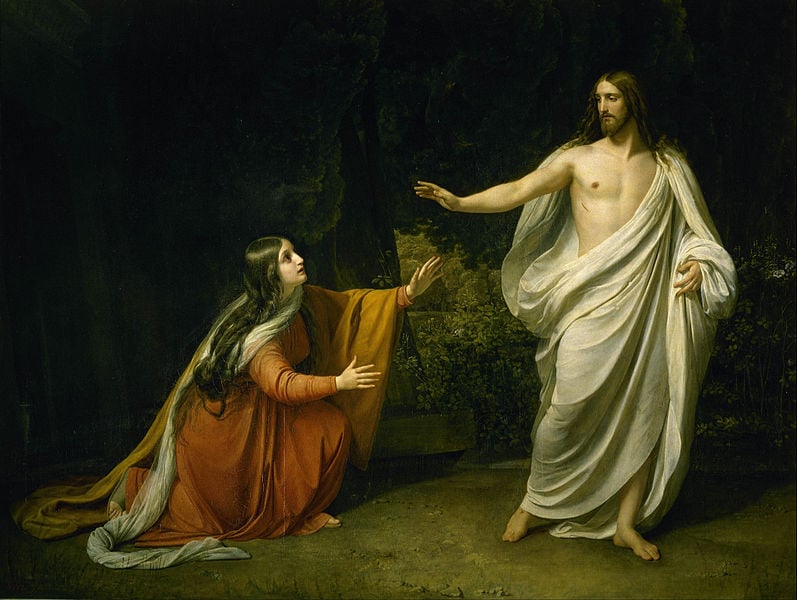The Jesuit Post’s Jeff Sullivan, SJ has written a nice post on the changing cultural understanding of manhood in post-Sexual Revolution America.
In doing so, he connects this with the noted fact of higher attendance of women at church and higher general religiosity, and cites authors as saying that there is a “problem”: “American churches have adopted primarily feminine language and ways of interacting and exploring spirituality.” This is a theme that we sometimes hear from Traditionalists: the pre-Vatican II Church was more masculine (all that lace and brocade, probably) and the post-Vatican II more feminine. That “masculine” is better than “feminine” is so taken for granted that it is never explicitly mentioned.
But I think there’s a flaw in the reasoning, which is that, as best as we can tell, Christianity has always been more successful among women than men. Although it would be unwarranted to say that Jesus had more women followers than men, I think the Gospels do testify that he had an inordinately high number of women followers. In the Roman era (and under most Paganisms), Christianity was scorned as a religion for women. The conversion of stubborn men through the influence of pious women is a strikingly recurring motif of Christian history, including Augustine, Clovis, St Vladimir, and so on. In 19th century France, the hard-secularist left-wing parties that dominated politics refused to give women the vote on the basis that women were more religious than men and would vote in religious parties. It’s well known that in Soviet Russia the faith was to an enormous extent kept alive, at least at the lay level, by women. There’s a reason why the Church Lady is a stock character of popular imagination, whether in Orthodox Russia, Anglican Britain or Catholic France.
What this tells me isn’t so much that Christianity is bad at appealing to men, but rather that women are better at being human beings. Men are all-too-often more easily distracted from more fundamental concerns by their lusts for power, glory, social recognition and so on.
The prescription, then, isn’t so much for the Church to learn from men, but for men to learn from women.
We are suggested more homilies on work; I say we need more homilies on Christ crucified and risen from the dead.
Noli Me Tangere, by Alexander Ivanov (1806 – 1858), public domain, via Wikimedia Commons












